

By Aldrich Reuelraj and Ida Namur
At the Fifth Annual Clean Energy and Sustainability Extravaganza at George Washington University (GWU) on February 15, 2019, attendees participated in a lively and interactive conversation featuring successful women in the energy and environmental fields talking about their careers and their perspectives on the retention and recruitment of women and other underrepresented people in these industries.
Speakers included Solome Girma, Director, Program Management Office at District of Columbia Sustainable Energy Utility (DCSEU); Annika Moman, Senior Vice President and head of Energy Services at AECOM; Lindsey Shaw, Manager, Energy and Sustainability Programs with Montgomery County and Nadia Khawar, Global Energy Group Manager at the Overseas Private Investment Corporation (OPIC). The panel was moderated by Ida Namur, Operations Manager at AECOM.
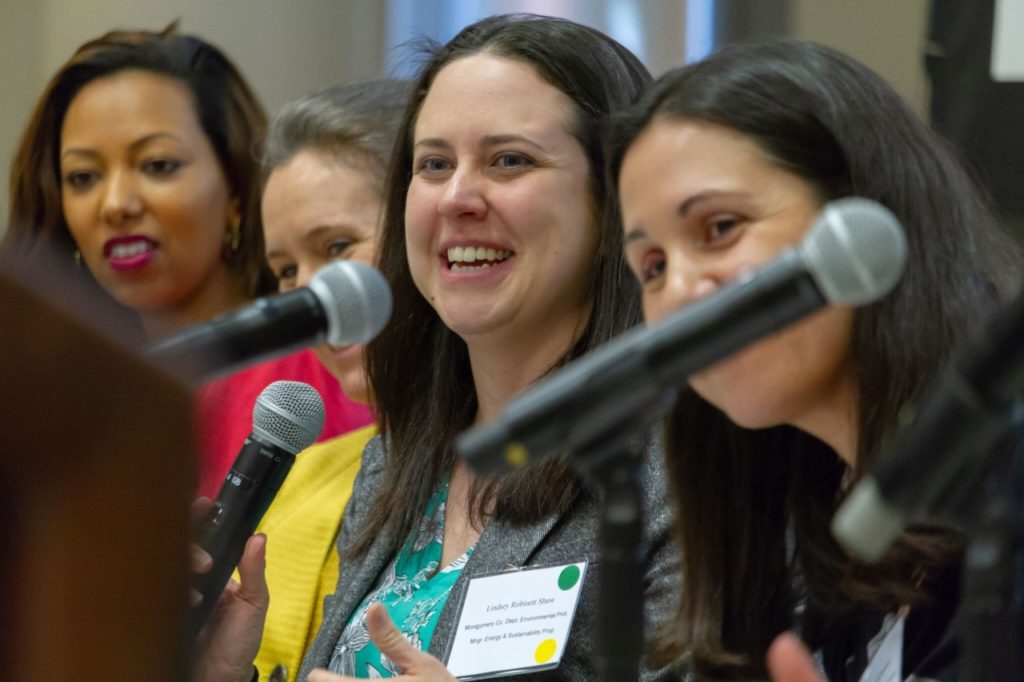
The panelists brought diverse perspectives to the important, but often uncomfortable subject of gender inequities in the workplace. The stats on the advancement of women in business can get pretty depressing: The number of female CEOs is declining, the gender pay gap is barely moving and women engineers are leaving the industry at increasing rates.
Women trying to “have it all” are exhausted. Women are less likely to have a stay at home partner and more likely to do more of the housework. The collective expectation that women are the primary caregivers means that women who have families may have less time than their male counterparts to work on those special projects that will get the attention of leaders, and in turn give opportunities for advancement. Common challenges encountered by women in industry include having to work harder than male peers for the same recognition, dealing with gender stereotypes and lacking a support network of other women.
But it is not all bad news. Research about networks and how we use them shows that for men, assuming all other things are equal, the key is having a strong network. For women, the key is having a strong network AND a close inner circle of other professional women. And that can be as few as two or three other women. The result is powerful: 75% of high-ranking women in the study had strong ties to an inner circle of women.
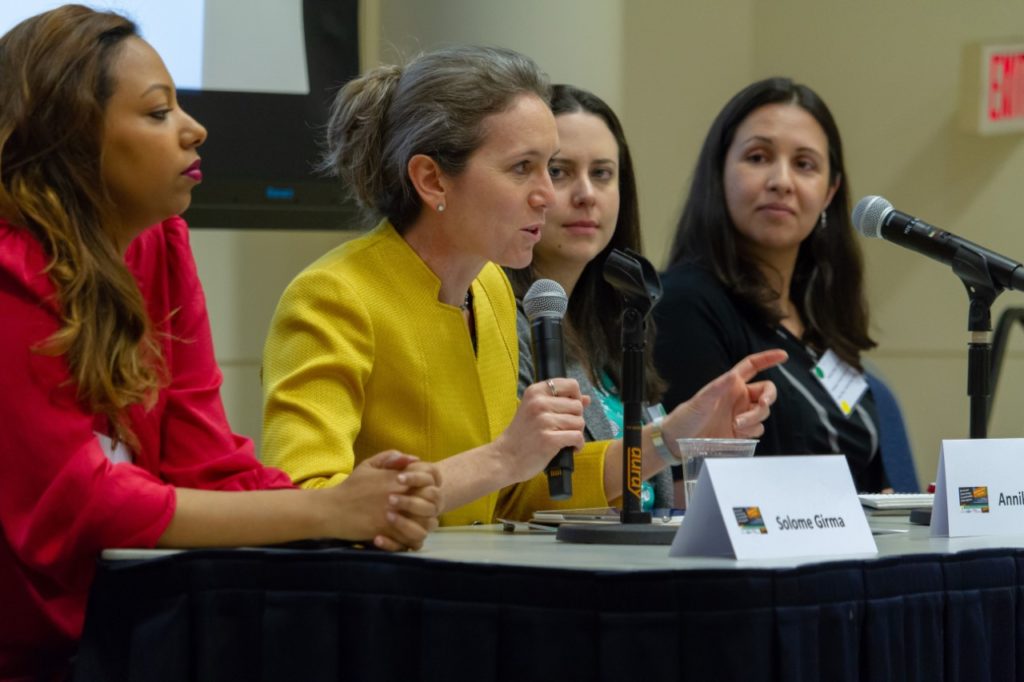
Annika spoke about spoke about how her work is oriented towards customer and demand side of the energy market, and she explained how a female senior leader at the company helped her get to the next stage in her career. Annika is a big proponent of diversification of the workforce and bringing different perspectives to the business including women and other underrepresented people in engineering.
Nadia spoke about her engagement in the 2X initiative. OPIC is committing to catalyze $1 billion to invest in women in developing countries. By the end of the first year, OPIC had surpassed that initial target. Through gender lens investing, OPIC is focused on providing women in the developing world access to finance, jobs, and services that enhance economic opportunity. OPIC is also pursuing EDGE Certification, a program designed to help organizations not only create an optimal workplace for women and men, but also benefit from it.
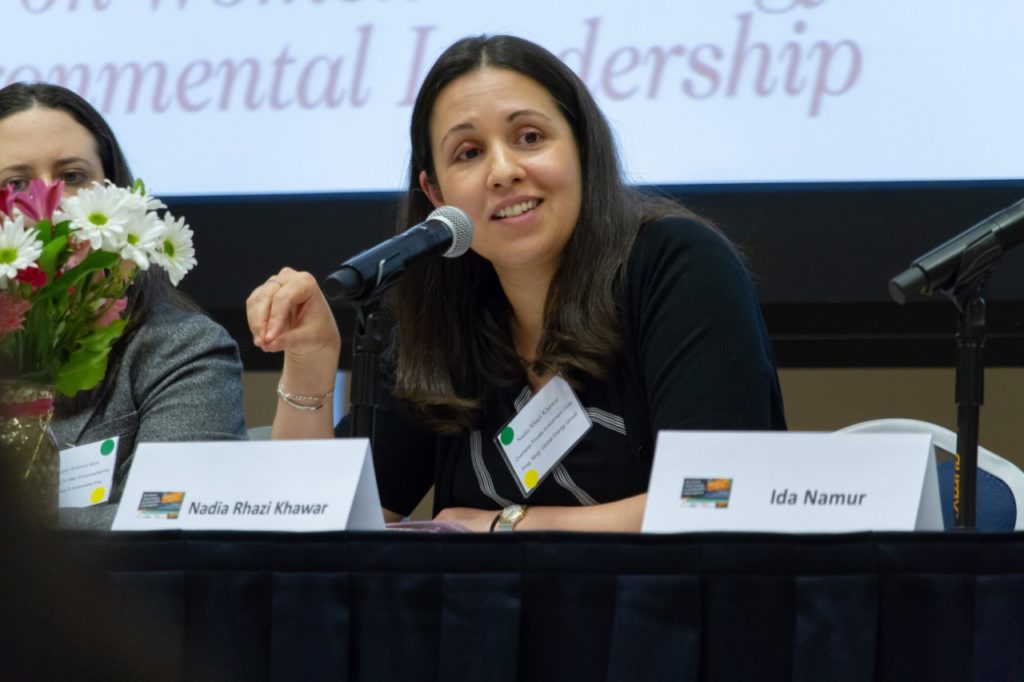
The audience got engaged right away, including a question about the phenomenon that men are judged on potential while women are judged on merit. Annika answered by talking about the importance of leadership recognizing inequities and taking action right away to correct it.
Ida then posed another question to the panelists asking what small companies are already doing or could do better to help promote female employees. Nadia quickly answered that small companies could make a commitment to hire more women, help educate female employees in STEM subjects and enable greater flexibility in work schedules. She also added that feedback and mentorship mechanisms would help promote female empowerment.
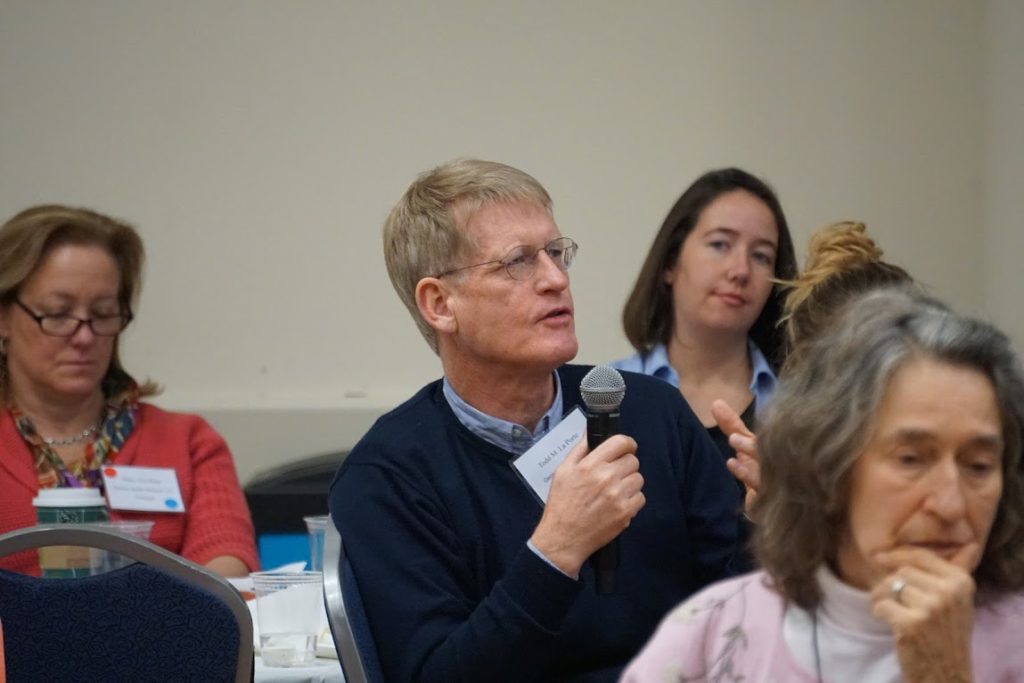
Lindsey talked about the importance of sponsorship and empowering junior colleagues in an ongoing relationship which helps promote other women. She also talked about “imposter syndrome”, a situation where an individual doubts their accomplishments and has a persistent internalized fear of being exposed as a “fraud”. Despite external evidence of their competence, those experiencing this phenomenon remain convinced that they are frauds, and do not deserve all they have achieved. This resonated with several members of the audience.
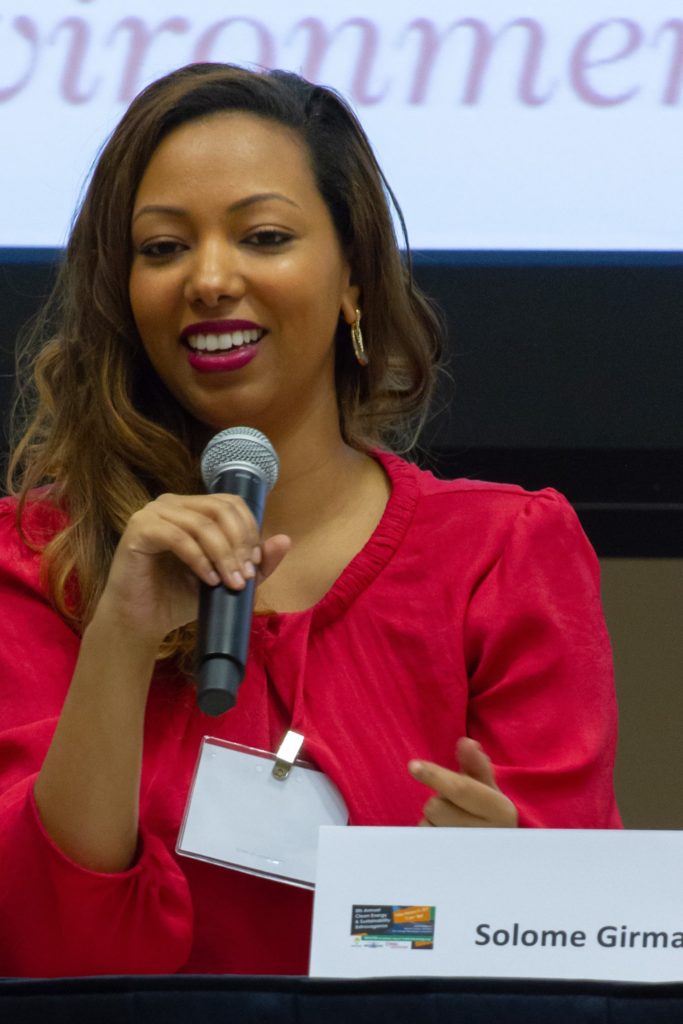
Solome talked about the differences in expectations for women versus men. In response to an observation from an audience member about perceptions about women, Solome reminded us that while women are expected to “act like men” in a business setting, there is no equivalent expectation for men to accommodate women colleagues.
The panel session ended with a discussion on women in engineering. Anika explained that engineering has not created a ‘value’ for the service it provides. She added that creating more value for engineering would attract more women to the engineering side of the energy industry. Solome also added that even very basic amenities were not available for female engineers working in the field. Making crucial amenities and services available for women would help encourage more to pursue careers in engineering.
While the engineering field in general may be struggling to retain women, the energy field is attracting women. With a focus on integration and collaboration, energy has a bright future for women and other underrepresented people in the industry.
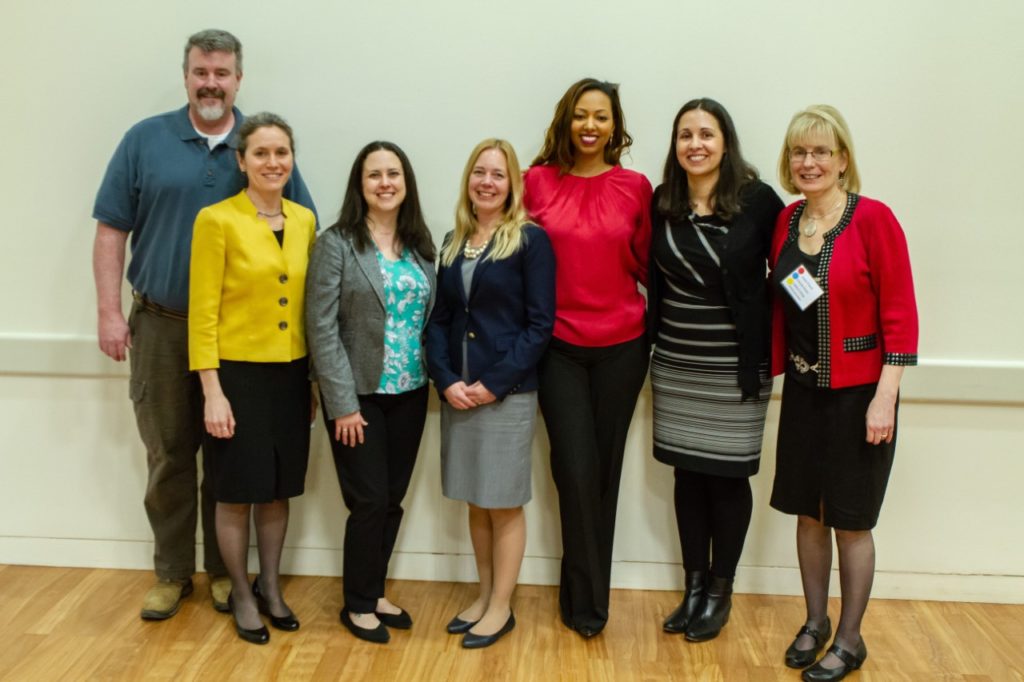
Note: The Council on Women in Energy & Environmental Leadership (CWEEL) is a division of the Association of Energy Engineers (AEE) that supports the role of women in the energy and environmental industries. It assists in career development activities for existing professionals, and also enables young women aspiring to leadership roles to find mentors to support their own development.
Aldrich Reuelraj is the President of the Association of Energy Engineers Student Chapter at the University of Maryland. He is a LEED Green Associate and holds the CMIT (Construction Management in Training) designation from CMAA. He will be a May 2019 Masters graduate of the Energy Systems Engineering program.
Ida Namuris the Operations Manager for Southeast Energy Services at AECOM. She also serves on the Board for the Association of Energy Engineers National Capital Chapter and is a member of Leaders in Energy. She is a Certified Environmental Professional (CEP) with 16 years of experience in the Environmental Consulting field.


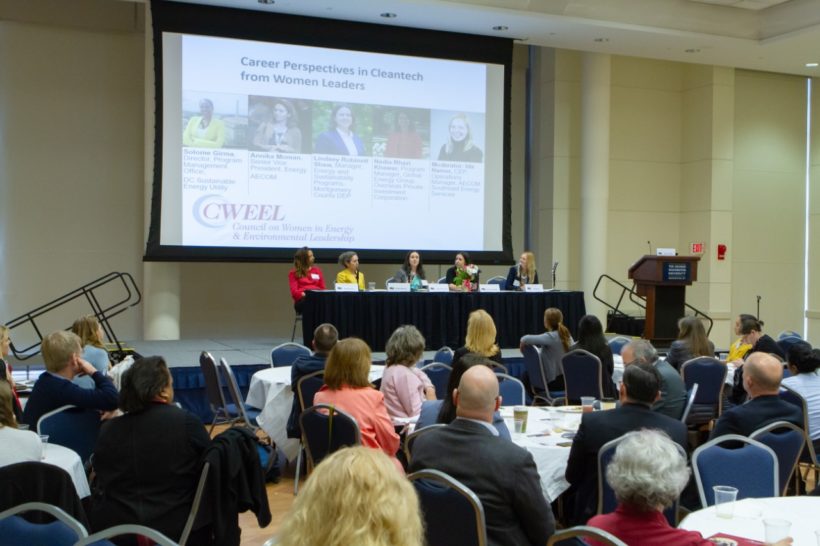
Leave a Reply